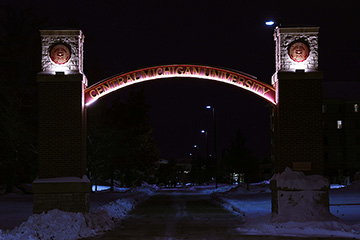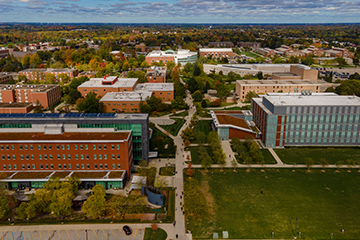Impactful work drives CMU’s research reputation
University maintains status in new prestigious ranking
Grants to help train teachers in rural school districts and monitor local wastewater systems for disease outbreaks were among the efforts that helped Central Michigan University maintain its reputation as a high research activity institution.
CMU Spent $25.4 million on research in 2023 and awarded an average of 77 research-related doctorates each year between 2020-23, according to the Indiana University Center for Postsecondary Research’s Carnegie Classification of Institutions of Higher Education.
“Since initially obtaining its high research activity status, CMU has continued to grow its research presence with a doubling of externally funded research in 2025 compared to the amount of research done when CMU was first elevated,” said Bradley Swanson, interim vice president for research and innovation. “The work done by our faculty, staff and students benefits Michigan and the USA economically and scientifically through the knowledge produced by these endeavors.”
One of those projects is a $15 million grant through the Michigan Department of Education to create a credentialing hub to help the state meet a critical need for teachers in rural school districts.
“The need to attract, develop, and retain educators in rural regions is crucial for the health and well-being of children, families, communities, and our state,” said Paula Lancaster, CMU’s provost and who at the time the grant was awarded was dean of the College of Education and Human Services. “We are proud to lead collaborative efforts and build a truly unique consortium of educator preparation programs and preschool-12 school districts that will address the persistent problem of educator shortages in rural communities across our state.”
Another project that directly benefits communities across mid-Michigan is a multi-year federal grant to monitor wastewater in rural communities. The program is expected to help rural communities stay safer in the event of another disease pandemic.
In their most recent award, CMU received $638,000 from the Centers for Disease Control to continue the program.
Producing 77 research-related doctorates a year also meets one of two criteria to qualify for the top tier of research institutions.
CMU first qualified as a high research activity institution in 2015, Swanson said.




